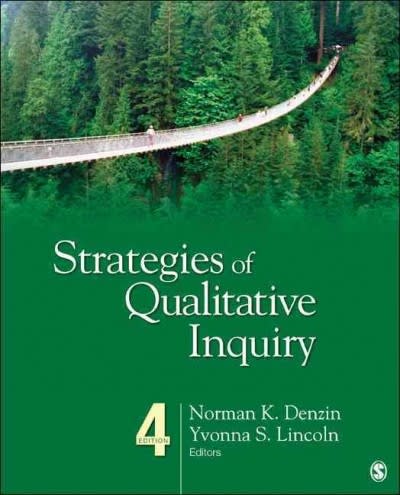Question
Sizwe has consulted with Nandipha for three consecutive sessions. During the third session, Sizwe asks Nandipha to give him advice on what to do. He
Sizwe has consulted with Nandipha for three consecutive sessions. During the third session, Sizwe asks Nandipha to give him advice on what to do. He is struggling to choose between keeping his old job and starting his own company. Nandipha asks Sizwe to explore what each of the choices mean to him and how each choice may affect him. Sizwe says it's Nandipha's job to make the choice for him because she is the therapist and she knows what will be best for him, he always makes the worst life decisions. Nandipha knows the value of having a working alliance in therapy, however, whenever she tells Sizwe they need to develop an alliance to help him with his current situation he ignores her and simply says that his view of therapy is that the therapist listens to his situation and then makes an educated decision to resolve the problem. Nandipha is shocked at their different views of the therapeutic relationship and sees this as a major downfall. She doesn't know how to change Sizwe's negativity. Nandipha is too afraid to assist in self-challenging for fear that she might hurt him or worse, that he will not like her anymore.
Explain what is the MUM-effect and how it is present in the case study. (3 Marks) Then identify at least two of the Mum-effect excuses that Nandipha uses for not inviting Sizwe to challenge himself (2 Marks). Lastly, indicate how you would use any of the challenging techniques you learned in PSYC321 to assist Sizwe (2 Marks).
Step by Step Solution
There are 3 Steps involved in it
Step: 1

Get Instant Access to Expert-Tailored Solutions
See step-by-step solutions with expert insights and AI powered tools for academic success
Step: 2

Step: 3

Ace Your Homework with AI
Get the answers you need in no time with our AI-driven, step-by-step assistance
Get Started


